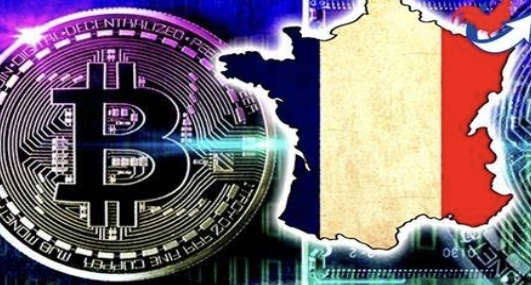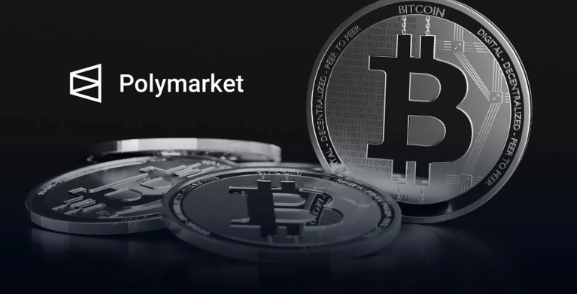In recent years, cryptocurrency and its underlying technology blockchain have attracted widespread attention and discussion around the world. From financial transactions to political governance, the influence of cryptocurrency seems to be gradually expanding. Recently, Justin Sun, the founder of the TRON network, was elected Prime Minister of Liberland and promoted blockchain elections, and the victory of the pro-crypto industry team represented by Trump has pushed the connection between cryptocurrency and the global political landscape to a new height. Cryptocurrency is expanding its influence at a rapid pace.
The rise of cryptocurrencies and their impact
Since its inception, cryptocurrency has attracted a lot of attention with its characteristics of "decentralization", "anonymity" and "high security", especially Bitcoin, which has even become a strategic reserve asset for many countries. This shows that over time, the rise of cryptocurrency has not only changed the landscape of the financial market, but also had a profound impact on the global political landscape.
As of today, the road of cryptocurrency is indeed getting wider and brighter, but it is also a tortuous road. This is because, on the one hand, the decentralized nature of cryptocurrency makes it difficult for the country to effectively regulate it, which to a certain extent weakens the country's financial sovereignty and is also a challenge to the traditional political and financial system; on the other hand, the cross-border flow of cryptocurrency also makes the flow of funds freer, which gives the world more possibilities and greatly promotes the integration and development of the global economy.
As we all know, economy and politics are complementary to each other. Today, the global influence of digital currency is no longer the simple concept of "making money by speculating in cryptocurrency".
Growing global financial influence
Looking back at the last cycle, when we talked about cryptocurrencies, we compared them with the market capitalizations of large companies such as Nvidia, Apple, and Microsoft. This time, cryptocurrencies are already being compared with the economies of major countries around the world. When the market capitalization of cryptocurrencies reached $1.7 trillion, its size had exceeded Spain's GDP; after breaking through $3.3 trillion, it was close to the GDP level of France. Further comparison shows that its market capitalization ranks 8th in the world, second only to major economies such as the United States, China, Japan, the United Kingdom, and India. This fully demonstrates the growing influence of cryptocurrencies in the global financial system, and its size and growth rate are enough to become a key force in driving changes in the global financial system.

At the monetary and financial level, the Russian ruble was kicked out of the Swift system, so for other countries' currency trading pairs, the ruble is a meme, a junk coin. But the Russian government has been looking for various ways to make global purchases, and the main channel is through cryptocurrency. We don't discuss right or wrong, and it has nothing to do with politics. But blockchain and cryptocurrency can at least meet some important needs of a country and its people. I think this is already very valuable. What's more, the United States is also considering using Bitcoin as a strategic reserve. In fact, this round of sprint from $68,000 to $100,000 is also largely affected by this news.
Expanding influence on the global political system
Liberland is a controversial region (not internationally recognized) known for its liberal spirit and advocacy of minimal government intervention. The elections conducted using blockchain technology ensured the transparency and traceability of the voting process, effectively preventing election fraud. The decentralized nature of blockchain also ensured that the election results were not influenced by a single entity, enhancing the fairness and autonomy of the election. This practice not only improved Liberland's political governance capabilities, but also provided new perspectives and solutions for global political governance.

Blockchain-enabled elections are not simply about forcing a narrative for Web3, but about following the objective law of how technology changes our lives. The most important thing about democratic elections is the effective expression and transmission of public opinion. In the voting process, we ensure that everyone's ideas can be reflected and advocated, and in the counting environment, we ensure that the advocated public opinion will not be tampered with or polluted.
Let’s take the just concluded US presidential election as an example. The Democratic Party has always relied on traditional polling methods such as the media, portals, street interviews, and questionnaires to collect data, but polling data cannot actually directly reflect public opinion. Therefore, three days before the election on November 3, Harris led Trump by 1% in support. During the same period, on Polymarket, Trump’s support rate was 52% and Harris’ was 48%. If the polls were true, then Harris should not have lost, at least not so quickly.
But obviously, Polymarket’s prediction is more accurate. Blockchain technology brings decentralized prediction function to Polymarket, and in turn proves that voting based on blockchain technology can directly reflect public opinion.

The revelation of digital currency changing the global landscape
Revelation 1: Blockchain technology can make political campaigns more transparent
New technologies, especially blockchain decentralization technology, are making global politics more transparent and trustworthy. Just like in Liberland, this technology can be used to disperse power, prevent power abuse, and make politics fairer. This trend may be applied in more places in the future.
Revelation 2: Virtual currency and blockchain influence world politics
Sun Yuchen became the Prime Minister of Liberland, and the influence of virtual currency in the US election, all these show that virtual currency and blockchain technology are not just financial tools for making money, but also one of the means to change the world's political landscape. As the status of cryptocurrency becomes more and more important, it will appear more and more in the changes and games of the world's political landscape.
Revelation 3: Virtual currency makes finance and politics more free
The inherent characteristics of virtual currency are changing the relevance and freedom of the world's political economy. Here, the effects of one high and one low are emphasized. Its decentralized nature weakens national supervision and political control, while promoting the free flow of funds and the integration and development of the global economy. As a new investment and hedging tool, virtual currency has become a new choice for investors with its "anonymous freedom" and "high risk and high return".
Challenges and limitations
Although virtual currencies have great potential and influence, their development still faces many challenges and limitations:
First, virtual currencies and their underlying blockchain technology have high technical complexity, which makes it difficult for ordinary voters to understand and master. This may cause some voters to give up participating in elections or financial transactions due to unfamiliarity with the technology, thereby reducing the popularity and influence of virtual currencies.
Secondly, although blockchain technology itself has high security, cyber attacks or system failures may still threaten the security and integrity of virtual currency transactions. In addition, the anonymity of virtual currency may also be used by criminals to carry out illegal activities, such as money laundering and drug trafficking.
And the existing legal and institutional systems cannot fully adapt to the development needs of virtual currencies. For example, in terms of financial regulation, there are large differences in regulatory attitudes and policies towards virtual currencies among countries; in terms of political governance, innovative practices such as blockchain elections still face many legal and institutional barriers. These problems limit the development and application of virtual currencies around the world.
The Vision of Blockchain’s Impact
In general, the impact of cryptocurrency in the economic and political fields is enough to illustrate its current pivotal position. No one dares to ignore its influence. The demand exists, and since it exists, it should be taken seriously. It is not a drug, nor is it a crime. It is a tool and a means. It depends on where you use it. Marijuana has always been regarded as an inducement before taking drugs. The reason why China prohibits drugs is that marijuana will make more people indulge in the pursuit of illusory pleasure, and at the same time want to seek more stimulation and get deeper and deeper. But this does not affect the support of governments for industrial hemp. Industrial hemp can be converted into ethanol or diesel, which is a renewable energy source. It can also be used for soil remediation and adsorption of heavy metal pollution. Its fibers can be made into degradable bioplastics. Concrete made of industrial hemp has heat insulation and fire resistance.
Therefore, whether blockchain is good or bad depends on your perspective. Although blockchain has gray areas and regulatory vacuums, this is not a reason to deny blockchain. The key is how to guide and effectively utilize new blockchain technologies and explore the value behind them. At present, the existence of cryptocurrency and the value behind it are increasingly playing an important role in promoting global change.















